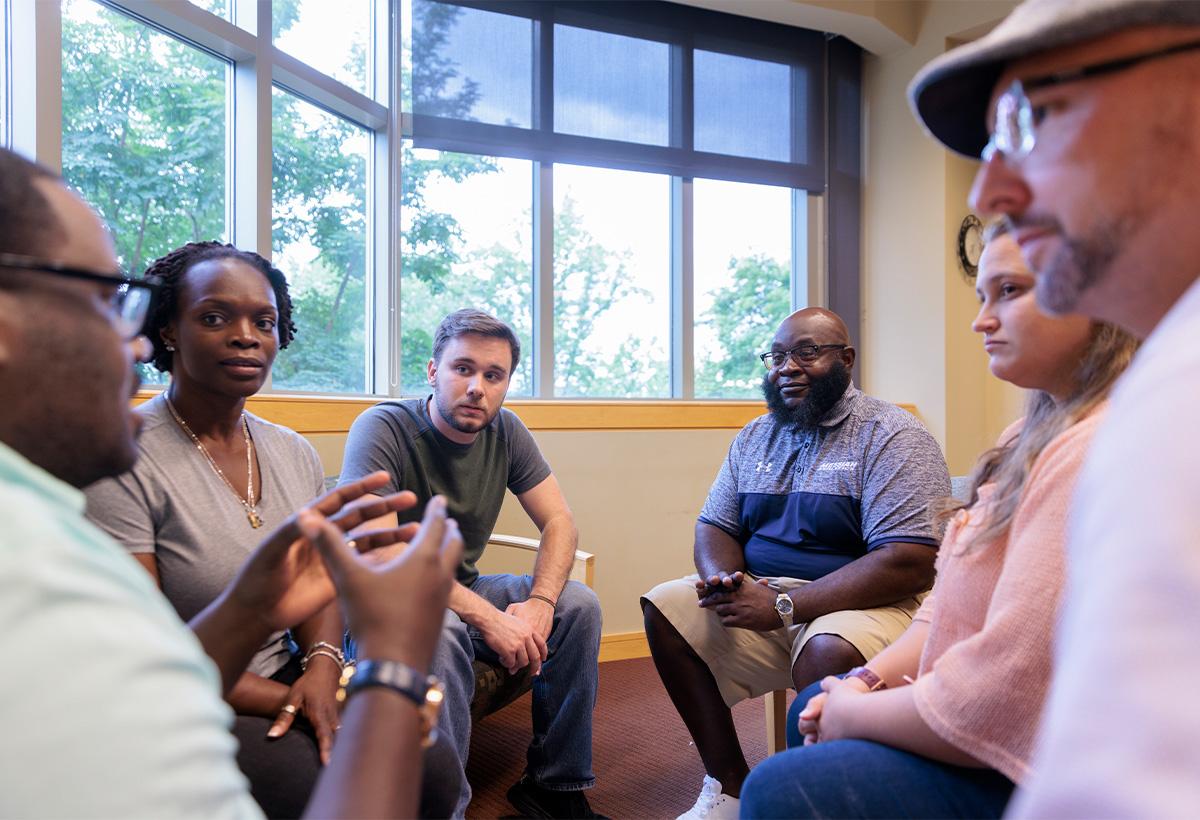Tuesday, June 11, 2024
Category: Topical
What can you do with a master’s degree in counseling?

Professional counselors provide hope and support for individuals navigating life’s challenges. Whether it’s guiding students through academic hurdles, helping individuals cope with mental health issues or assisting families in crisis, counselors play a vital role in fostering well being and resilience. As the demand for mental health services continues to rise, graduate programs in counseling offer aspiring professionals a pathway to meaningful careers.
The need for professional counselors
Professional counselors are needed to meet the mental health struggles of adults and youth. Recent surveys reflect the significant mental health challenges many Americans face.
Demand for increased access to professional mental health services is a nationwide challenge. According to a report from the American Counseling Association, the U.S. behavioral health market is projected to grow by $49.3 billion in the next decade. “Demand for mental health services has outpaced the number of available professional counselors,” notes Leah Clarke, program director for the graduate program in counseling at Messiah University.
What to consider when choosing a master’s in counseling program
Graduate programs in counseling open doors to a diverse range of career opportunities. Considering these factors can help you make an informed decision when choosing a master’s program in counseling that aligns with your career aspirations and educational needs.
Some key considerations include:
Time investment
Graduate programs in counseling typically require a significant time investment. Programs can range from two to three years of full-time study, including coursework, practicum experiences and internships.
Many universities offer options for accelerated or part-time programs to accommodate students’ diverse needs and schedules. Online and hybrid learning formats provide flexibility for working professionals or those unable to attend traditional on-campus programs. It’s essential for prospective students to research and choose programs that align with their career goals, learning preferences and lifestyle.
Licensure or Certification
Licensure is a critical step for counselors to practice legally and ethically. The requirements for licensure or certification vary by state and country but typically include completing a master’s or doctoral degree in counseling from an accredited program, accumulating supervised clinical experience and passing a licensure exam.
Check your state’s licensure requirements.
School counselors can typically become certified immediately after graduation. Certification is a different process for this counseling career track.
Earning potential
While the primary motivation for pursuing a career in counseling is often the desire to help others, counselors can also enjoy rewarding earning potential. Salaries vary based on factors such as experience, credentials, location and specialization. According to the May 2023 national wage estimates from the U.S. Bureau of Labor Statistics, the annual mean wage for a counselor is $61,790.
Counselors working in settings like government agencies and schools tend to have higher earning potential. Private practice offers opportunities for counselors to set their rates and potentially earn higher incomes based on their client base and services offered.
Who should get a master’s degree in counseling?
A master’s degree in counseling is suitable for individuals who are passionate about helping others overcome mental health challenges and improve their overall well-being.
“The program is welcoming to people of all occupational and educational backgrounds,” says Clarke. “Our students have a wide variety of undergraduate degrees.”
Clarke highlights several personal characteristics that are important for success in the field of counseling:
If you’re seeking a master’s of counseling that is designed to help you become an effectivecounselor who can work with clients in a variety of settings, consider obtaining a Master’s of Counseling at Messiah University. Students in Messiah’s program will be prepared to serve others in the counseling process, develop leadership and advocacy abilities, and support reconciliation in communities and relationships. Distinctives of a Messiah University counseling degree include: